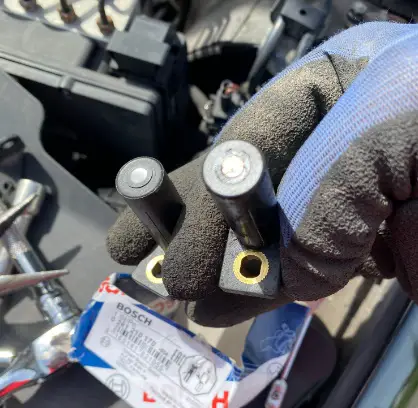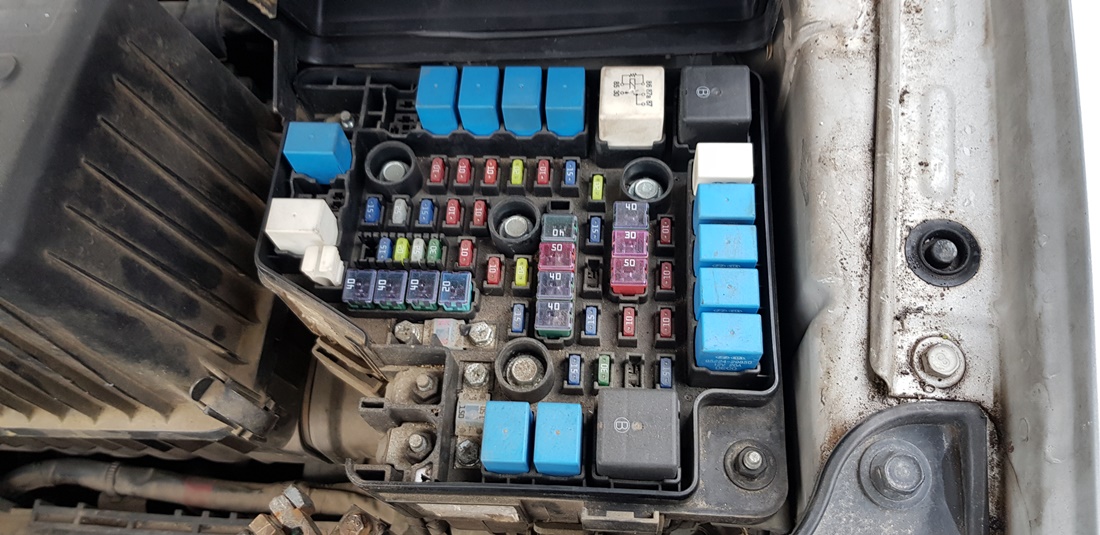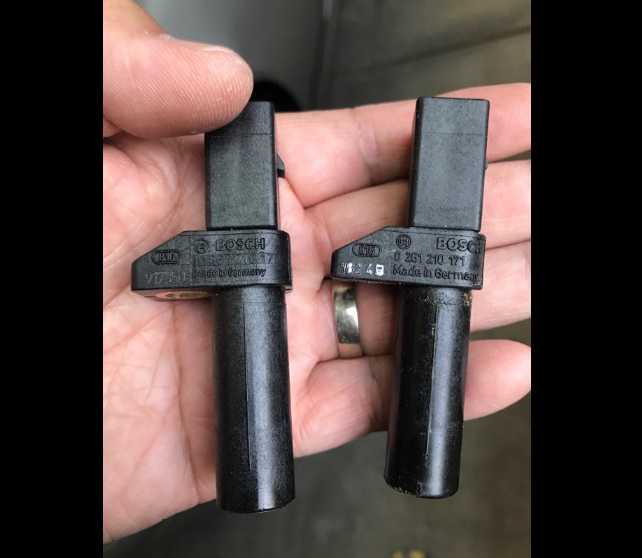If you’re looking to enhance the suspension on your car, coil-over shocks may be the solution. But what exactly are they and what should you know before investing in a set?
In this blog post, we’ll cover everything you need to know about coil-over shocks so you can make an informed purchase.
We’ll explain their operation, the various types available, and what qualities to look for when shopping. Whether you’re an experienced pro or just starting out in car modifications, read on for all the information necessary!
Key Takeaway
- Coil-over shocks are part of the suspension system that has a coil spring around a shock absorber that allows for a comfortable ride and stability when driving.
- Coil-over shocks are better than traditional shocks but are more expensive.
- If you install adjustable coil-over shocks in your vehicle, you do not need to install struts.
- It is better to get a wheel alignment before installing the coil-over shocks because this way, all of the suspension parts will be in their place and installation will be easier.
What Are Coil-Over Shocks?

Coil-over shocks are a type of shock absorber often used in racing applications. These shocks offer more adjustability for the vehicle’s suspension setup and improve performance by giving you better control over it.
Coil-over shocks are a type of suspension system that uses coil springs around a shock absorber for increased comfort and control while driving.
Additionally, these shocks can be compressed or extended, helping absorb bumps and shocks from the road surface. Overall, coil-over shocks offer improved ride quality as well as greater driver precision.
Coil-over shocks offer several advantages to vehicle owners. One major advantage is their adjustable suspension setup, allowing you to customize the stiffness of the shocks according to your driving style and conditions.
Another advantage of coil-over shocks is their superior control over suspension. Traditional shocks rely on springs to absorb bumps in the road, while with coil-over shocks, the shocks themselves function as dampers for more precise control over acceleration and deceleration.
Finally, coil-over shocks tend to be lighter weight than traditional shocks, providing you with a weight saving that could improve your vehicle’s performance.
Are Coil-Over Shocks Better?

Coil-over shocks offer improved handling and adjustability, making them a popular choice for performance vehicles and off-road enthusiasts.
Coil-over shocks feature a spring coiled around the shock, working together as one unit to absorb road imperfections.
This design provides superior handling and control, making them ideal for performance vehicles or rugged off-road use.
One of the key advantages is their adjustability. Users can tweak ride height, spring preload, and damping characteristics to suit their specific needs or preferences.
This allows for a more tailored driving experience, whether it’s for track day performance or navigating tough terrain.
However, it’s important to note that while coil-over shocks offer these benefits, they tend to be more expensive than traditional shock absorbers and may not be necessary for everyday driving conditions.
Ultimately, whether coil-over shocks are “better” will depend on your vehicle, driving style, and personal preferences.
Do I Need Struts With Coil-Overs?

Coil-overs integrate the shock and spring into one unit, eliminating the need for separate struts.
Coil-overs are suspension device that combines both the shock absorber and the spring in a single unit.
In traditional suspension systems, the spring and strut are separate components, but a coil-over incorporates these elements into one.
This means that when you install coilovers, you’re effectively replacing the struts in your vehicle.
The design of coilovers allows for a more compact suspension setup and offers improved adjustability over a traditional spring and strut arrangement.
Therefore, if you’re considering upgrading to coilovers, you won’t need to worry about purchasing separate struts.
Is Coil-over Good For Daily Driving?

Coil-overs can be suitable for daily driving, but their performance-oriented design may not be necessary or comfortable for all drivers.
Coil-overs are often associated with performance and off-road vehicles due to their adjustability and improved handling characteristics.
For the average driver, this level of performance might not be necessary for day-to-day commuting.
While coil-overs can be adjusted for a smoother ride, they generally provide a firmer ride than standard suspension systems, which some drivers may find uncomfortable.
Additionally, coil-overs tend to be more expensive than traditional shocks and struts, which could be a consideration for daily driving.
However, if you value a sporty, responsive feel from your vehicle and don’t mind a firmer ride, then coilovers could be a good choice for your daily driver.
Remember, the best suspension system for you will ultimately depend on your personal preferences and driving needs says QA1.
Do Coil Overs Need To Settle Before Alignment?

However, coilovers don’t necessarily need to settle before getting an alignment. In fact, it’s actually better to get one before installing your coilovers as this ensures all suspension components are in their correct positions and the alignment technician can make necessary adjustments more easily.
When it comes to coilovers, there are a lot of misconceptions out there. One popular one is that they must settle before getting an alignment. This couldn’t be further from the truth!
An alignment occurs when all four tires point in the same direction and both front and back wheels are parallel to one another. With proper alignment, your car will ride more smoothly down the road and handle better around corners. Alignments are essential for improving vehicle safety overall.
One of the major advantages of coilovers is that they do not need alignment. This is because coilovers have adjustable spring perches, allowing you to adjust your ride height without affecting suspension geometry.
As a result, you can get exactly the right stance without worrying about throwing off alignment. Furthermore, coilovers provide superior handling and a smoother ride than other types of suspension systems.
If you’re searching for an easy-to-maintain suspension system that offers superior performance, coilovers are your go-to choice.
What Happens If You Adjust Preload On Coil Overs?
Adjusting preload on coilovers is like altering the tension on the spring, which in turn impacts how far a coil over can move before reaching full compression. More preload will lead to less travel, while less will provide more freedom of movement.
Adjusting preload can be done to adjust the ride height of your vehicle. If you want it lower, decrease the preload; conversely, if you want it raised, increase it.
It is essential to remember that too much or too little preload can have detrimental effects on ride quality and suspension performance, so experiment with small adjustments first and test drive afterward to see how it feels.
Coilovers are suspension components that coil around the shock absorber. By adjusting preload on coilovers, you can control how stiff or soft your suspension feels.
To adjust preload, first, loosen the locknut at the bottom of the coil-over and turn its adjustment knob clockwise for a softer suspension.
For firmer suspension, turn the knob counterclockwise. After setting your preload to your liking, be sure to tighten up the locknut so your adjustment doesn’t come loose.
With just a few turns of a wrench, you can easily adjust your coil over preload for any situation.
FAQs
What is a Coil-Over Suspension?
A coil-over suspension is a type of vehicle suspension system that integrates the shock absorber and spring into one compact unit. The term “coil-over” comes from the coil spring being located over (or around) the shock absorber. This design allows for a more streamlined and efficient suspension setup, offering improved handling and adjustability compared to traditional separate shock and spring systems.
Who are Coil-Overs Suitable For?
Coil-overs are particularly popular with performance and off-road vehicle enthusiasts. Their adjustability allows for fine-tuning of ride height, spring preload, and damping characteristics, enabling drivers to tailor their vehicle’s handling to specific driving conditions or personal preferences. However, due to their typically firmer ride and higher cost compared to standard shocks and springs, they may not be necessary or comfortable for everyday commuting.
Can Coil-Overs Be Adjusted?
Yes, one of the key advantages of coilovers is their adjustability. Drivers can adjust the ride height, spring preload, and damping characteristics to suit their specific needs or preferences. This allows for a more tailored driving experience, whether it’s for track day performance or navigating tough terrain.
Are Coil-Overs More Expensive Than Traditional Shocks and Springs?
Generally, coilovers tend to be more expensive than traditional shocks and springs. This is due to their advanced design, adjustability features, and the performance benefits they offer. However, the exact cost can vary greatly depending on the brand, model, and specific features of the coil-overs.
What is the Lifespan of Coil-Overs?
The lifespan of coil-overs can vary based on several factors including the quality of the components, how aggressively the vehicle is driven, and how well the coil-overs are maintained. Some manufacturers offer a rebuild service and warranty for their products, which can extend their usable life.
Can Coil-Overs Improve Vehicle Handling?
Yes, one of the primary benefits of coilovers is improved vehicle handling. The integrated design offers more precise control over the suspension system, resulting in better stability and responsiveness. Additionally, the adjustability of coil-overs allows drivers to fine-tune their vehicle’s handling to their specific needs or preferences, further enhancing driving performance.
Conclusion and final thoughts
In conclusion, coil-over shocks offer a number of benefits for automotive enthusiasts.
From improved handling and ride quality to the ability to adjust vehicle height, these suspension upgrades can greatly enhance the overall driving experience.
Furthermore, with advancements in technology and design, coil-over shocks are more versatile and customizable than ever before.




